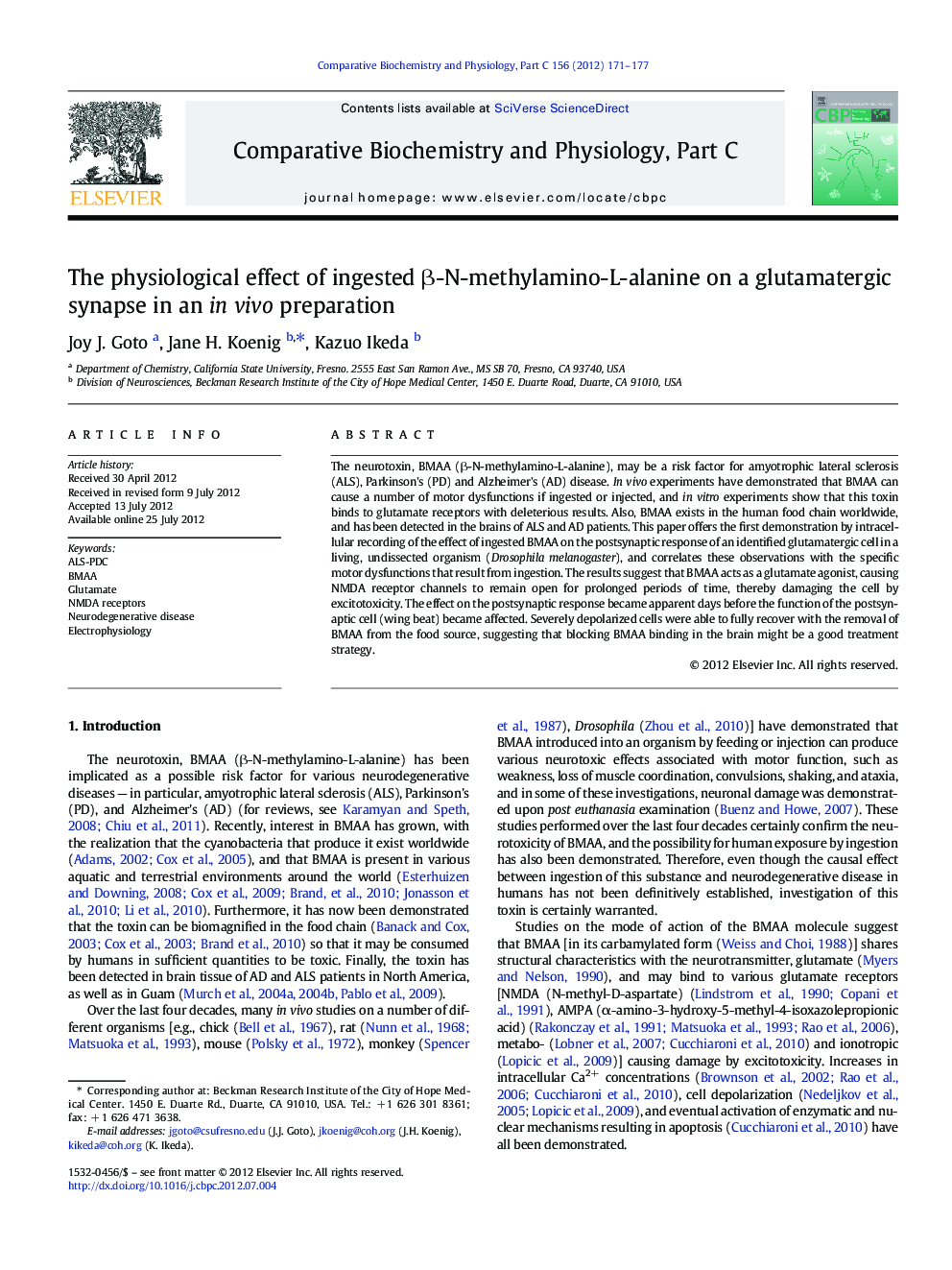| کد مقاله | کد نشریه | سال انتشار | مقاله انگلیسی | نسخه تمام متن |
|---|---|---|---|---|
| 8319213 | 1539298 | 2012 | 7 صفحه PDF | دانلود رایگان |
عنوان انگلیسی مقاله ISI
The physiological effect of ingested β-N-methylamino-L-alanine on a glutamatergic synapse in an in vivo preparation
دانلود مقاله + سفارش ترجمه
دانلود مقاله ISI انگلیسی
رایگان برای ایرانیان
کلمات کلیدی
موضوعات مرتبط
علوم زیستی و بیوفناوری
بیوشیمی، ژنتیک و زیست شناسی مولکولی
زیست شیمی
پیش نمایش صفحه اول مقاله

چکیده انگلیسی
The neurotoxin, BMAA (β-N-methylamino-L-alanine), may be a risk factor for amyotrophic lateral sclerosis (ALS), Parkinson's (PD) and Alzheimer's (AD) disease. In vivo experiments have demonstrated that BMAA can cause a number of motor dysfunctions if ingested or injected, and in vitro experiments show that this toxin binds to glutamate receptors with deleterious results. Also, BMAA exists in the human food chain worldwide, and has been detected in the brains of ALS and AD patients. This paper offers the first demonstration by intracellular recording of the effect of ingested BMAA on the postsynaptic response of an identified glutamatergic cell in a living, undissected organism (Drosophila melanogaster), and correlates these observations with the specific motor dysfunctions that result from ingestion. The results suggest that BMAA acts as a glutamate agonist, causing NMDA receptor channels to remain open for prolonged periods of time, thereby damaging the cell by excitotoxicity. The effect on the postsynaptic response became apparent days before the function of the postsynaptic cell (wing beat) became affected. Severely depolarized cells were able to fully recover with the removal of BMAA from the food source, suggesting that blocking BMAA binding in the brain might be a good treatment strategy.
ناشر
Database: Elsevier - ScienceDirect (ساینس دایرکت)
Journal: Comparative Biochemistry and Physiology Part C: Toxicology & Pharmacology - Volume 156, Issues 3â4, November 2012, Pages 171-177
Journal: Comparative Biochemistry and Physiology Part C: Toxicology & Pharmacology - Volume 156, Issues 3â4, November 2012, Pages 171-177
نویسندگان
Joy J. Goto, Jane H. Koenig, Kazuo Ikeda,